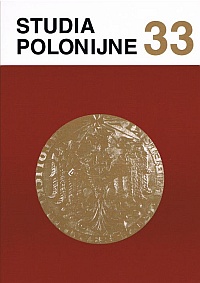Poland in Zygmunt Czarnecki's conceptions of Central Europe. Political thought in the émigré circles in the period of the Cold War
Main Article Content
Abstract
The ideas of Messianism have a special place in the tradition of Polish political thought. One of the post-war visionaries was Zygmunt Czarnecki, an officer in Józef Piłsudski's legions, a staff officer in Polish Armed Forces in the West, and after 1945 an emigration activist living permanently in Great Britain. His views on European federalism evolved under the influence of the political events of the 20th century, and especially of the next world-wide conflict that was expected in the period of the Cold War. The article presents his project of building a dominant position in Eastern-Central Europe for Poland; the project was often criticized for its surrealism and changes of its principles concerning the relations between the military and politics. He identified himself with the conceptions of confederating various regions of Europe, with securing a leading role for his own country in unifying the central part of the continent. He considered achieving success as depending on joining “the exquisite tradition of Romantic realism” and on “changing the doctrine from passive to active”, especially in the sphere of the military. Being fascinated with two spheres of public activity led Czarnecki to establishing the Brigade Circle of the Young “Pogoń” in London in 1949. The Circle partly allowed him to realize his political and military ambitions.

